Water heater sizing
mike_73
11 years ago
Related Stories

GREAT HOME PROJECTSHow to Switch to a Tankless Water Heater
New project for a new year: Swap your conventional heater for an energy-saving model — and don’t be fooled by misinformation
Full Story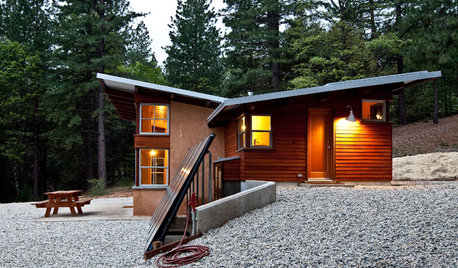
GREAT HOME PROJECTSHow to Add a Solar Water Heater
Lower energy bills without a major renovation by putting the sun to work heating your home’s water
Full Story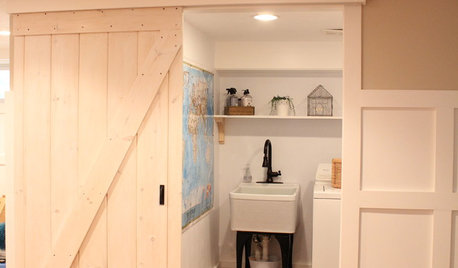
DIY PROJECTSMake Your Own Barn-Style Door — in Any Size You Need
Low ceilings or odd-size doorways are no problem when you fashion a barn door from exterior siding and a closet track
Full Story
GARDENING AND LANDSCAPINGGet Wise to Size: How to Furnish an Outdoor Room, Small to Spacious
Put your garden slice or grand patio on the best-dressed list with furniture and features best suited to its square footage
Full Story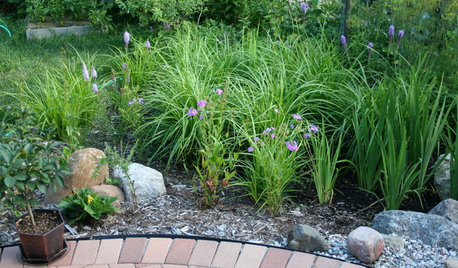
LANDSCAPE DESIGNHow to Site and Size a Rain Garden for Your Landscape
Installing a rain garden is an excellent way to reduce runoff and return water to its source
Full Story
GARDENING FOR BUTTERFLIESBring on the Birds: Natural Habitat Ideas for Gardens of All Sizes
Provide nesting, watering and perching spots inspired by the Costa Rican jungle and watch the birds flock on over
Full Story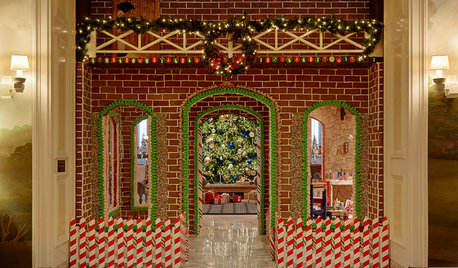
HOLIDAYSGet an Eyeful of a Life-Size Gingerbread House
With 2 tons of candy, gingerbread and icing, this holiday confection will make your mouth water and your heart sing
Full Story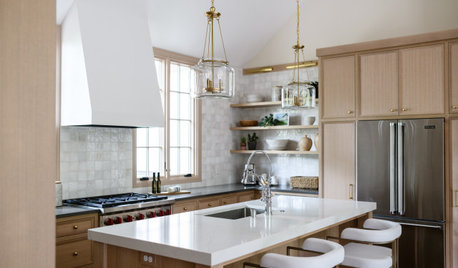
KITCHEN DESIGNHow to Choose a Kitchen Sink Size
Bigger isn’t necessarily better. Here’s how to pick the right size sink for your kitchen, needs and budget
Full Story
DECORATING GUIDESSize Up the Right Area Rug for Your Room
The size of a rug can make an important difference to the feel of a room. Here are some tips to help you make the right choice
Full Story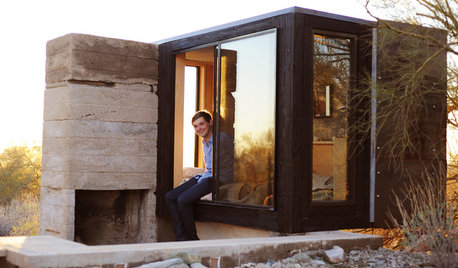
SMALL HOMESHouzz Tour: A Student's Bed-Size Shelter in the Arizona Desert
Could you sleep in such a small space just above the desert floor? One Taliesin architecture student at a time does just that
Full StoryMore Discussions






ronaka
mike_73Original Author
Related Professionals
Citrus Park Kitchen & Bathroom Remodelers · Blasdell Kitchen & Bathroom Remodelers · Boca Raton Kitchen & Bathroom Remodelers · Cocoa Beach Kitchen & Bathroom Remodelers · Fremont Kitchen & Bathroom Remodelers · Glen Carbon Kitchen & Bathroom Remodelers · Morgan Hill Kitchen & Bathroom Remodelers · New Port Richey East Kitchen & Bathroom Remodelers · Oklahoma City Kitchen & Bathroom Remodelers · Oxon Hill Kitchen & Bathroom Remodelers · Pasadena Kitchen & Bathroom Remodelers · Santa Fe Kitchen & Bathroom Remodelers · Thonotosassa Kitchen & Bathroom Remodelers · Wilmington Island Kitchen & Bathroom Remodelers · Paradise Kitchen & Bath Fixturesbrickeyee
ronaka
mike_73Original Author
mike_73Original Author
Elmer J Fudd
mike_73Original Author